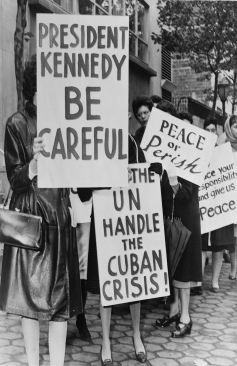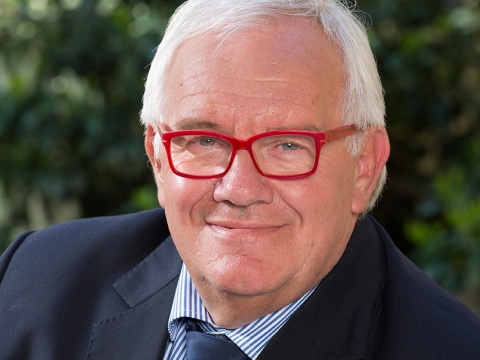For an Immediate, Total, and Unconditional Disarmament of all Nuclear Weapons
By Anton Heinzl
Published on July 16, 2014

On 16 July 1944, almost 69 years ago, and as part of the Trinity Project, the first atomic bomb was ignited in the USA. The result of this test was satisfactory. Just four weeks later, Hiroshima and Nagasaki were completely annihilated by atomic bombs.
The pressure wave of “Little Boy” destroyed all the buildings in Hiroshima within a radius of two kilometers. The heat of the fireball burned people into dust. Tens of thousands still suffer from the effects of radiation.
The explosive power of the Hiroshima bomb is low when compared to the explosive force of the other bombs that were built in the years and decades that followed. Calculations assume that it would take about 50 atomic bombs similar to the one used in Hiroshima to eradicate humanity and all plants and animals through a nuclear winter. Worldwide, there are at least 17,000 nuclear warheads ready for use.
One does not need to assume the worst scenario of a nuclear war in order to realize that every single nuclear weapon is a number too much and would constitute a real danger. The humanitarian impact of a single explosion would be disastrous; hundreds of thousands would be affected.
The risk that a nuclear warhead might fall into the wrong hands does not pose the only danger. Technical systems can fail too. An accident might occur, or monitoring systems can malfunction, and give an erroneous warning of a first strike by an opponent, similar to the one that occurred in 1983 in the USSR. At that time, the responsible Russian officer Stanislav Petrov decided not to rely on computer warnings. Had his decision been different, we wouldn’t be alive today.
I could go on to list many other examples where humanity has narrowly escaped nuclear annihilation during the last 69 years, but I think this is not necessary. Here I would like to quote Albert Einstein: “Man invented the atom bomb, but no mouse would ever construct a mousetrap.”
With respect to nuclear weapons, there is security policy-wise only one right answer: Immediate, total, and unconditional disarmament. Austria, a country that is entitled to make use of nuclear power for civilian purposes, has always held and actively advocated this position internationally.
We are not alone in this important message. Norway and Mexico strongly endeavor to ensure that the terms of the Nuclear Non-Proliferation Treaty of 1970 are finally accepted and implemented by all states.
The commitment of Austria in cooperation with Norway and Mexico, to provide a new impetus in the disarmament debate is to be clearly welcomed.
The announced conference for December on the humanitarian impact of nuclear weapons is an important step on the road to a nuclear-free world.
The Author

Anton Heinzl is an Austrian politician and Parliamentarian.
This article is based on a speech he gave in the Austrian parliament on 10 July 2014.
The article was translated from German by Mohamed Elghusein, J.D.
Article picture: 800 women from the Women Strike for Peace demonstrate in New York on 23rd October for a peaceful settlement of the crisis. Source: Wikipedia


